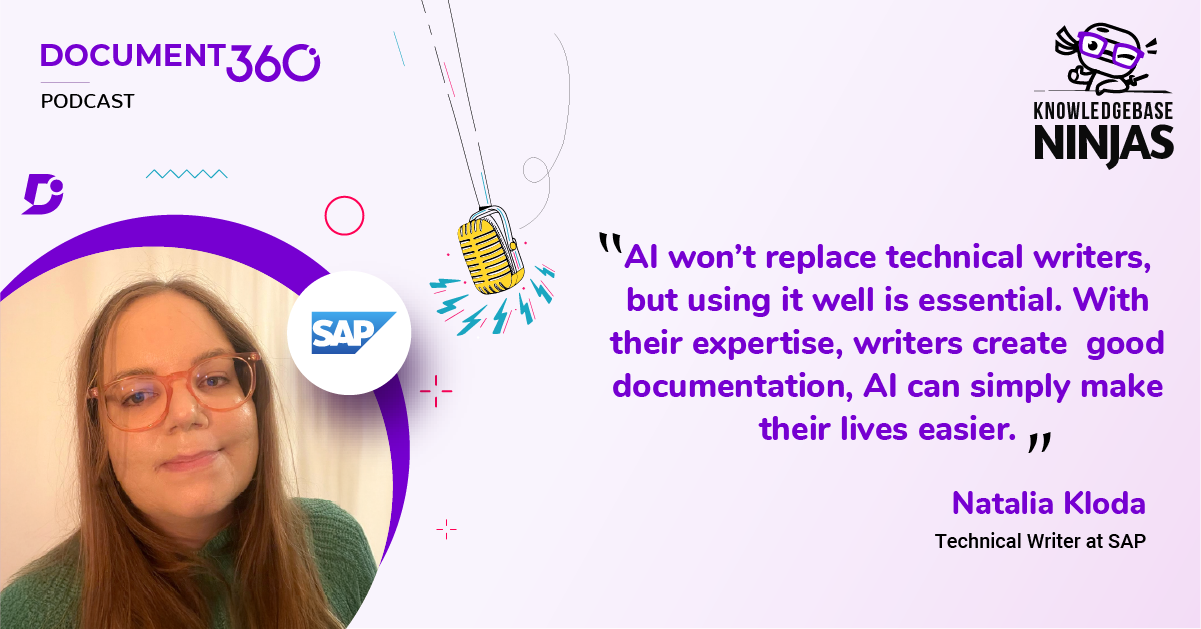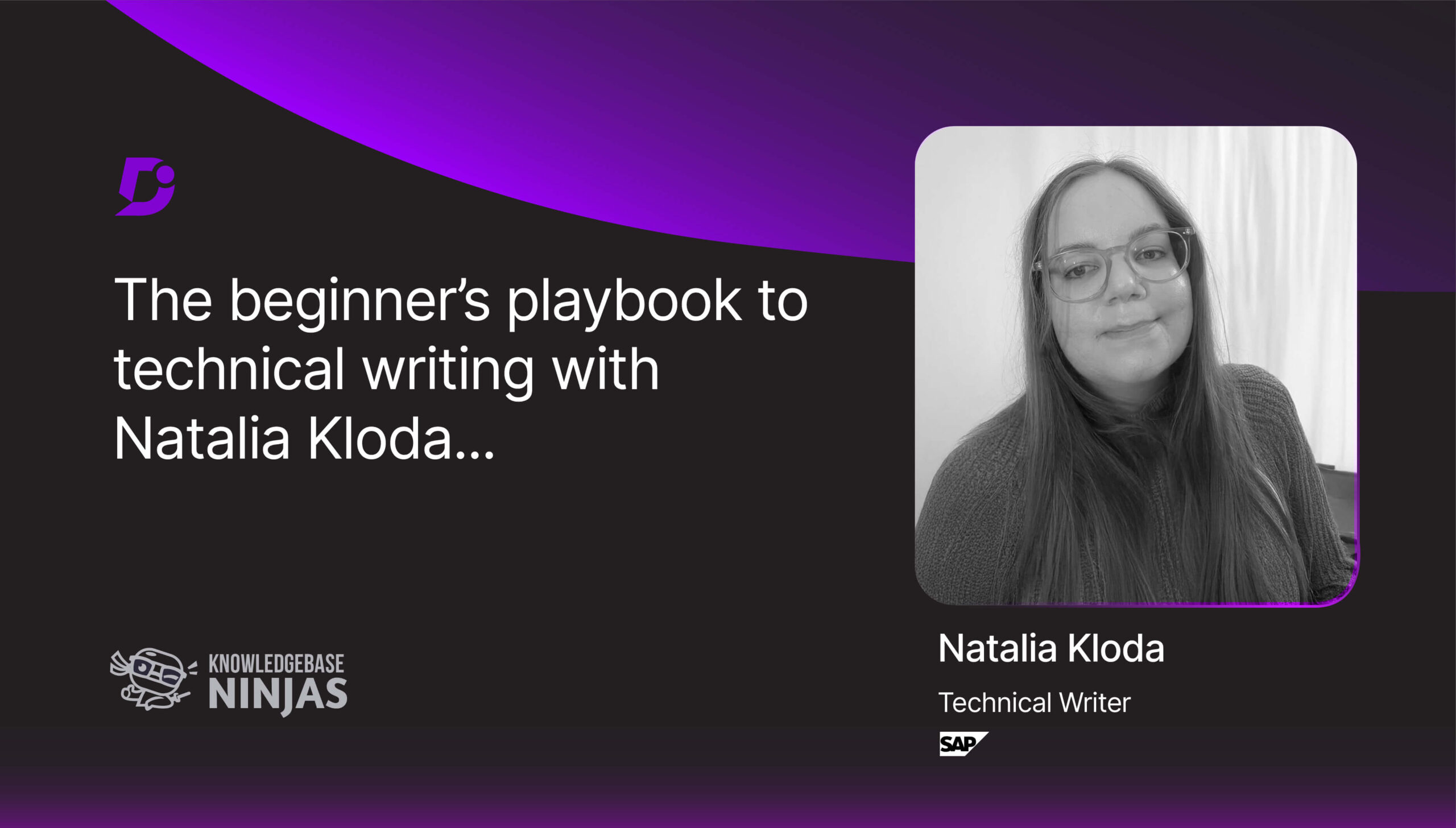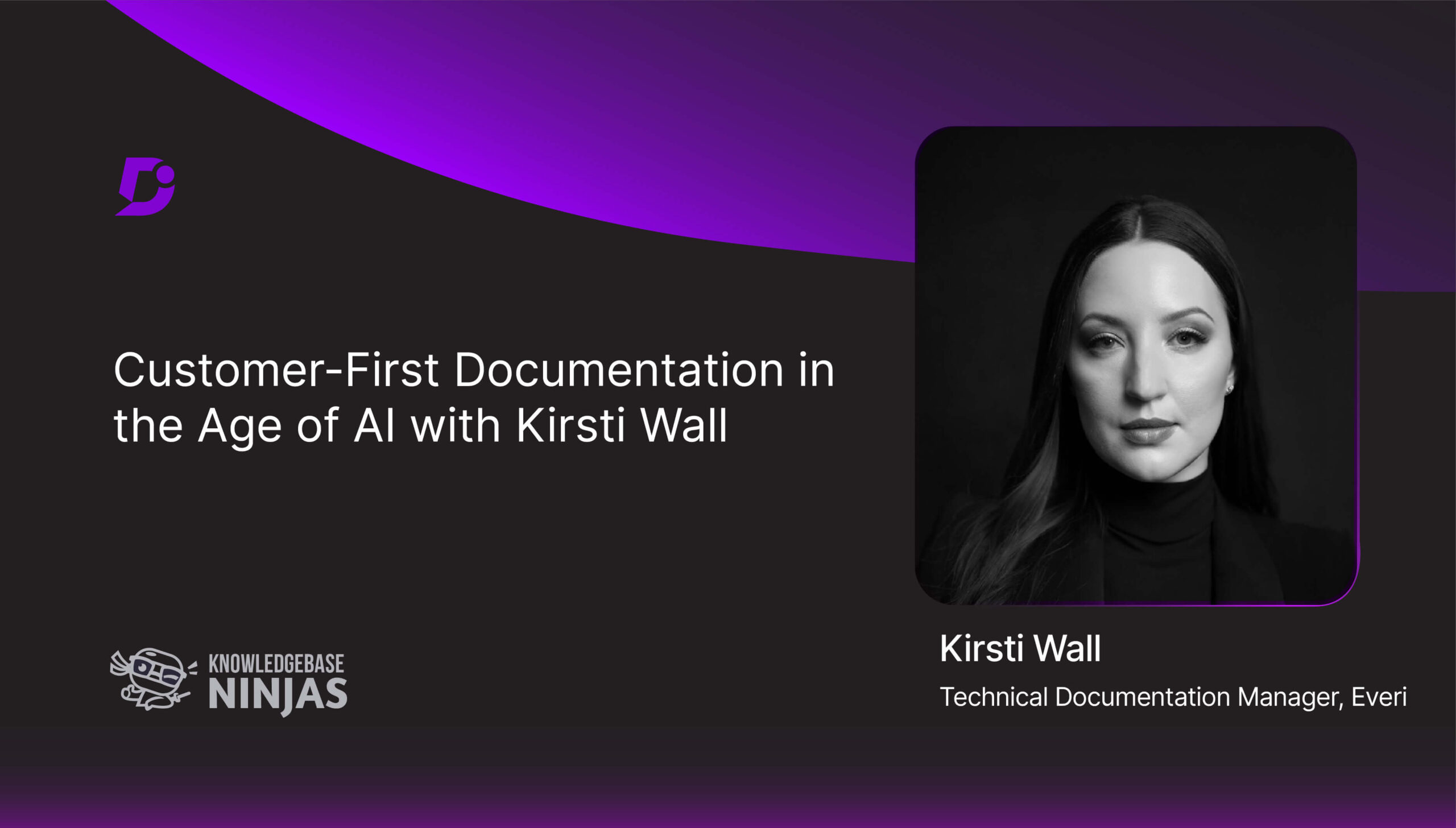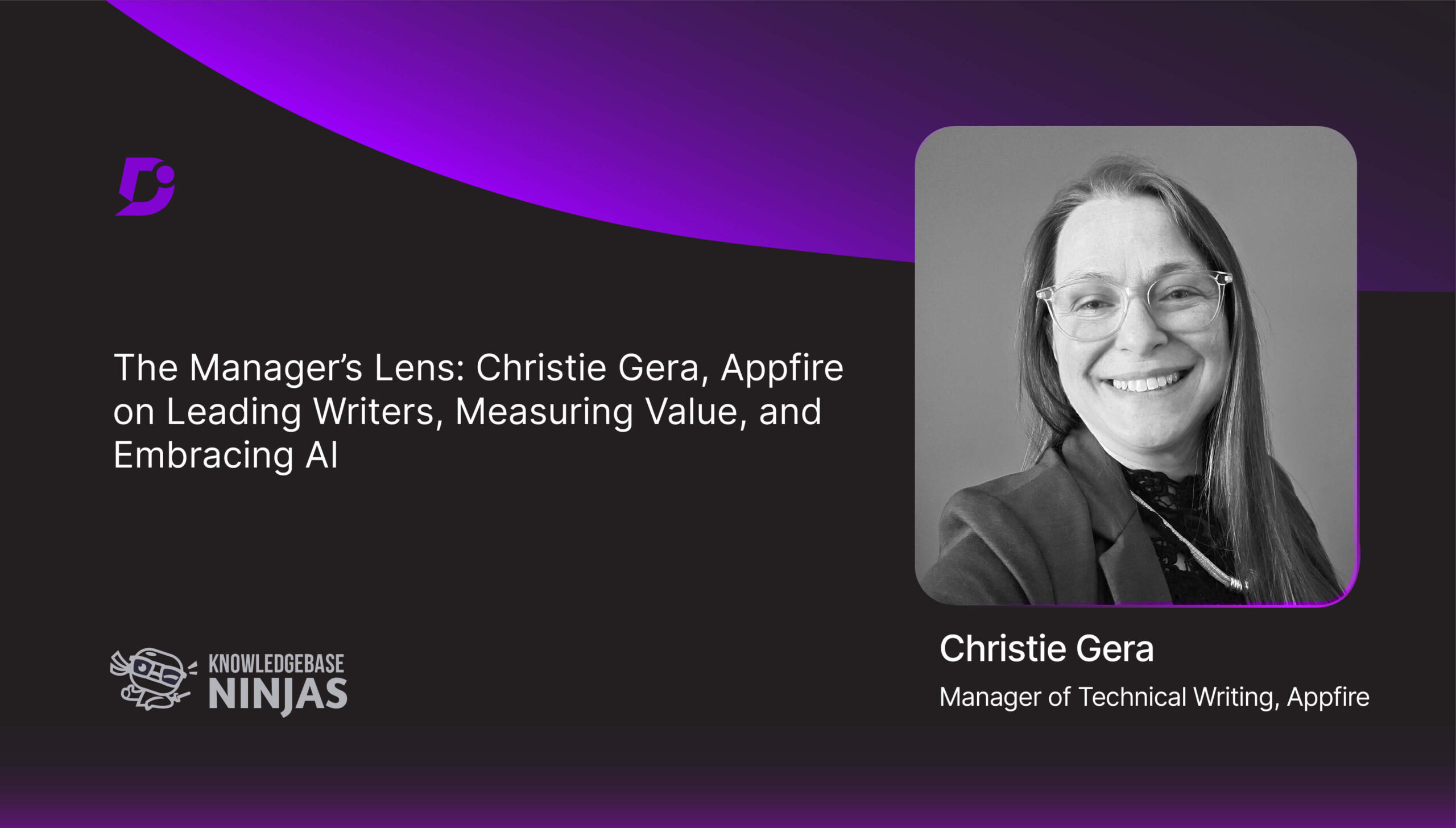Natalia Kloda, Technical Writer at SAP, shares insights on how to start a career in technical writing without prior experience. She discusses the essential skills to develop and offers advice on effectively leveraging knowledge management tools to excel in the field.
Watch the full podcast episode video here
Listen to the podcast here:
About Natalia
- Natalia’s LinkedIn
- With a background in English and German translation and interpreting, she transitioned to the technical writing space.
- She secured a role at SAP through her proactive learning and enthusiasm for the field.
Key Takeaways
- According to Natalia, technical writers need deep product understanding, to proactively seek information and clarity to create accurate and effective documentation, and patience when facing challenges.
- “While using Content Management Systems or Knowledge Management tools it is important to understand the purpose of content rules and potentially improve them.
- “Use tools with defined rules, like a topic-based structure, to ensure concise and well-organized content”, adds Natalia.
- Documentation should be involved early in the development process, such as during proof-of-concept phases and it must be considered as an integral part of the product, aligning with feature releases.
- Natalia says, “Documentation needs must be properly communicated. Be assertive and address any gaps during retrospective meetings.”
- AI tools can be used to do grammar checks, reduce the usage of jargons, and to enhance content. Additionally, Large Language Models (LLMs) can be used in generating short descriptions and summaries.
- Technical writers need to embrace and master AI tools to stay relevant and improve efficiency while maintaining the human touch in creating high-quality documentation.
Rapid fire with Natalia Kloda
-
Highly recommended resource
CS50: Introduction to Computer Science course by Harvard University
-
One word that comes to your mind when you hear documentation
Content
-
A piece of advice you would give your 20-year-old self
Be patient, embrace feedback, and focus on growth and skill improvement
Subscribe to Knowledgebase Ninjas:





 –
– 

